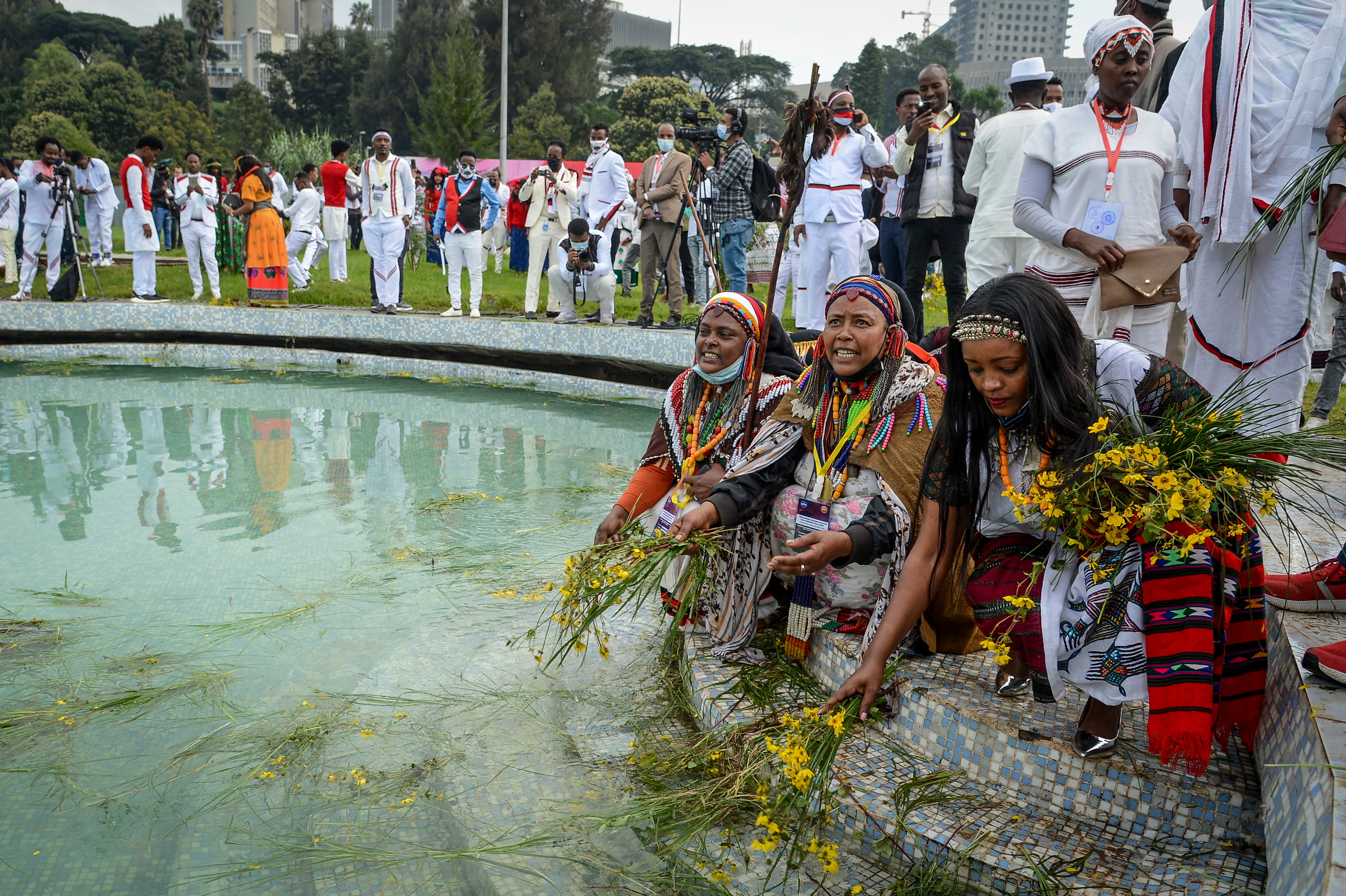Tight security, many arrests for Ethiopian Irreecha festival
Ethiopia’s largest ethnic group, the Oromo have celebrated the annual Thanksgiving festival of Irreecha amid tight security and a significantly smaller crowd due to political tensions and the COVID-19 pandemic

Your support helps us to tell the story
From reproductive rights to climate change to Big Tech, The Independent is on the ground when the story is developing. Whether it's investigating the financials of Elon Musk's pro-Trump PAC or producing our latest documentary, 'The A Word', which shines a light on the American women fighting for reproductive rights, we know how important it is to parse out the facts from the messaging.
At such a critical moment in US history, we need reporters on the ground. Your donation allows us to keep sending journalists to speak to both sides of the story.
The Independent is trusted by Americans across the entire political spectrum. And unlike many other quality news outlets, we choose not to lock Americans out of our reporting and analysis with paywalls. We believe quality journalism should be available to everyone, paid for by those who can afford it.
Your support makes all the difference.Ethiopia’s largest ethnic group, the Oromo on Saturday celebrated the annual Thanksgiving festival of Irreecha amid tight security and a significantly smaller crowd due to political tensions and the COVID-19 pandemic.
Hundreds of people were arrested ahead of the festival, some accused by authorities of plotting terror attacks and a new wave of unrest.
Wearing face masks and white clothes stitched with the colors of the Oromia region’s flag, people in downtown Addis Ababa were subjected to at least six security checks complete with body searches and, in some areas, sniffer dogs.
“I don’t know the kind of information they have but these security checks are too much,” said Hassen, a participant who gave only his first name, fearing for his safety. “Added with the COVID-19, it really has ruined the festive mood.”
The festival usually attracts hundreds of thousands of people, but only a few thousand were allowed to attend this year.
More than 500 people were arrested on suspicion of plotting to disrupt the festival, the Oromia police commission said Thursday. On the same day, the National Intelligence and Security Service said it had arrested people suspected of planning to carry out terror attacks and cause unrest at the celebrations in Addis Ababa and nearby Bishoftu, adding that 10 Kalashnikovs were seized.
People travelling to the capital from other regions were banned from entering the city, multiple sources told The Associated Press. Officials said they were carrying out strict security checks but did not confirm the ban.
Notably, people carrying the Oromo Liberation Front and Oromo Federalist Congress party flags were absent in this year’s festival. Some of the parties’ leaders are behind bars for alleged involvement in the deadly unrest that followed the killing of popular Oromo singer Hachalu Hundessa in June. On Friday, an Ethiopian court charged four people suspected in the killing, which led to turmoil that saw more than 180 people and thousands arrested.
The Oromo, while the country’s largest ethnic group, traditionally have expressed frustration over perceived marginalization. Prime Minister Abiy Ahmed is the country’s first Oromo leader, but he faces growing criticism by some Oromo that he hasn’t done enough for them.
The Irreecha festival marks the end of the rainy season and the start of the harvest. It has seen violence in the past.
During the 2016 celebration in Bishoftu, a town 40 kilometers from the capital, several dozen people were crushed to death in a stampede after police fired tear gas and rubber bullets to disperse anti-government protesters.
“Amid a pandemic, reasonable restrictions on public gatherings may be justified. But with tensions already high, expressions of dissent and resistance to government directives may be expected. The government should show it has learned lessons from its recent responses to demonstrations and the events of 2016 by ensuring security forces exercise restraint and allowing gatherers to celebrate safely,” tweeted Laetitia Bader, Horn of Africa director for Human Rights Watch.